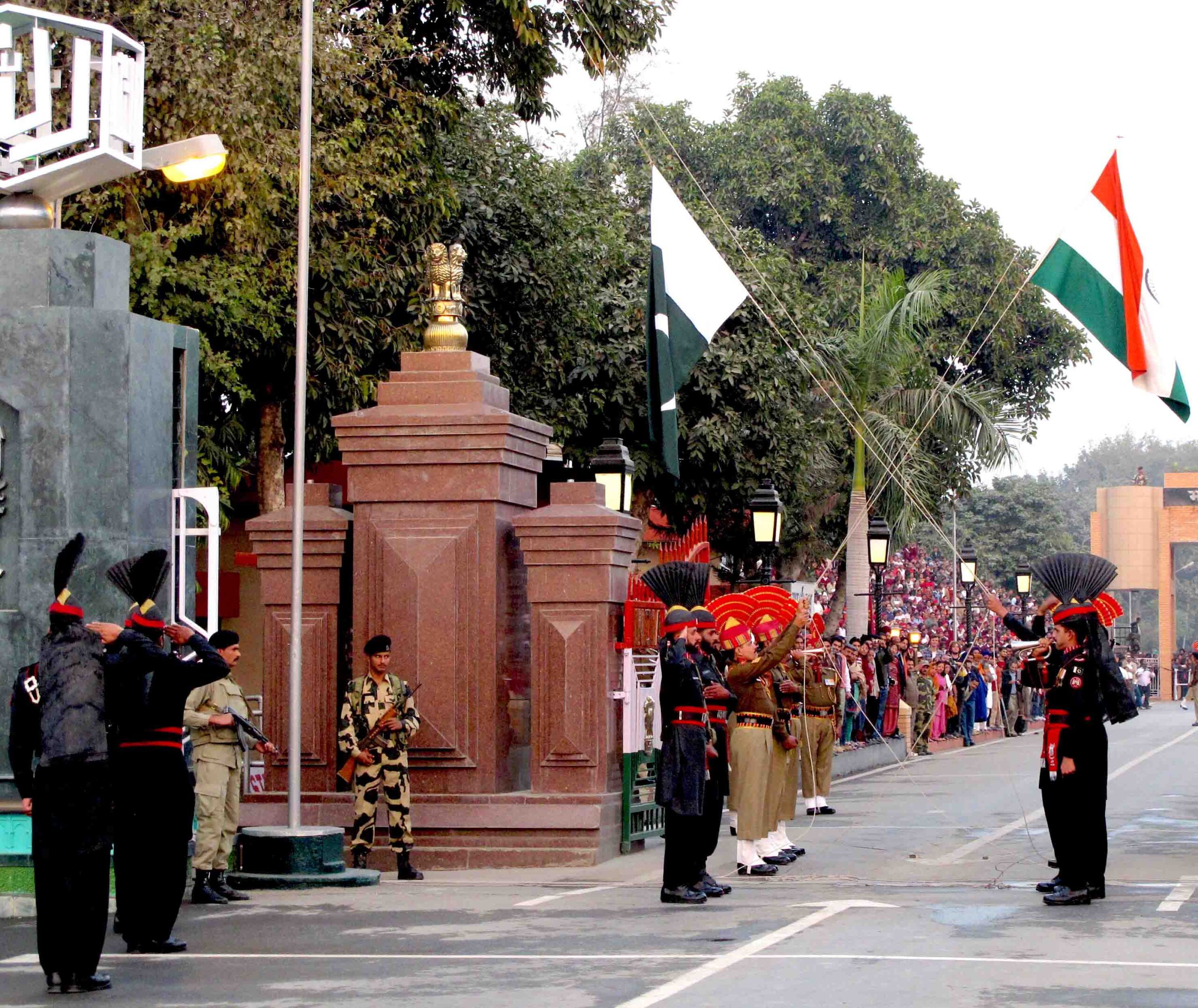
THE FRONTIERS OF OUR MINDS
There is a stranger-than-fiction ceremony that takes place every sun down at the Wagah border between India and Pakistan. Soldiers stationed at each side put on a theatrical display of strength as they march to the loud beats of a drum, with expanded chests, angry frowns and shoulder high kicks to shut the border gates. They bring down their flag, fold it perfectly and carry it solemnly away.
All this has a background noise: the jingoistic cries of patriotic chants egging the soldiers on to one up the other in their exaggerated moves. The gates are a part of the theatre too. In reality, people cannot simply walk across the border and families have been separated for decades due to one of the strictest visa regimes of the world.
But just before the vast gates are shut, separating people who were once part of the same country, something magical happens. Two angry looking soldiers from each side, walk forward to the other, smile and shake hands. The rival flag waving audiences cheer the vicarious handshake between armies who were once sons of the same soil, but later fought four wars. Were it not for that gate, they would be cracking jokes in the same language, dance to the same music and eat the same food.
Walls and Gates
To divide a people, I wonder, should we build a wall or a gate?
Whether it is to separate the Romans from the “barbarians” or guard against Mongol raids, or gain political currency to deter migrants from a poorer neighborhood, a wall makes a clear statement. It is absolute and allows no hope, no stolen glances. It leaves no room for doubt or question. It’s “us” and “them”.
Gates, on the other hand, offer a glimpse and they tease. They open, creating an illusion of hope. And then, they close, putting an end to that dream. They also create a grey area, a piece of land in between that belongs neither here nor there - a little bit of nowhere called the No Man’s Land.
For Urdu speakers like me, the reference to such area is best encapsulated in the reference ‘Toba Tek Singh’. It is the name of a place and the title of Manto’s classic fiction on the absurdity of the 1947 partition of the Subcontinent.
Pakistan’s birth was both celebrated and mourned as a separation from the motherland. Hundreds of thousands of Muslims travelled from India to Pakistan, and Hindus and Sikhs travelled from what was to become Pakistan towards what was to remain India. Manto’s story imagines a similar transfer of inmates of different religions at a “lunatic” asylum. When a Sikh inmate finds out that he is being shifted to India while his hometown Toba Tek Singh would now fall in Pakistan, he couldn’t bear the confusion and, on his way, lay down on the No Man’s Land, between the two countries bordered by wire fences. Manto’s words read: “There, behind barbed wire, was India. Here, behind the same kind of barbed wire, was Pakistan. In between, on that piece of ground that had no name, lay Toba Tek Singh."
The frontiers of our minds
And what about the walls, borders and gates that grow in our hearts? All seems well until the day our neighbour becomes our enemy. We believe in no borders until poor immigrants’ dock at our ports in rickety boats. We believe in unity until one country declares a war on another and we must take sides. We believe in democracy, until the other guy wins, and our polarized world cracks open crevices within family and friends.
I am not sure if we can overcome the frontiers of our minds. We build walls while we speak against them; we shut gates that should stay open; we take sides like brainwashed soldiers unable to have a debate of ideas.
Perhaps we should learn to live in a No Man’s Land, where we can agree that nothing makes sense but that we will not be torn apart by the frontiers that confine our bodies and minds.
“Birds, streams and wafts of air
Cannot be stopped by any frontiers
These borders are only for humans,
Just imagine, then
What have you and I gained
By being human?”
Javed Akhtar for film “Refugee”